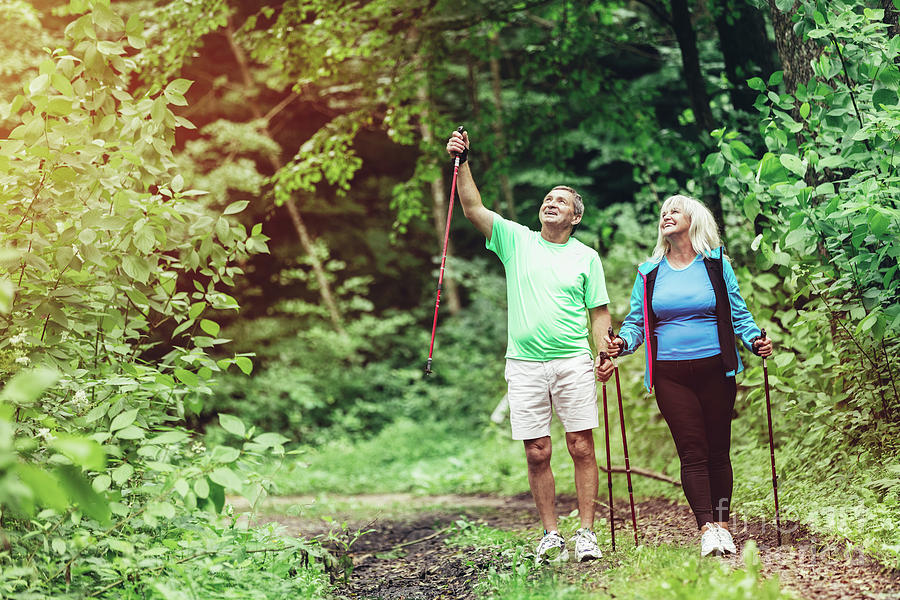
There’s something restorative about time spent in nature.
I write this column from a fireside camp chair in one of Michigan’s majestic state parks. The weather and the setting have been worthy of a Pure Michigan ad campaign.
Crisp weather and leaves beginning to show off their fall colors in earnest. Hiking through the dunes and biking miles of trails through stately forests. Waves cascading across the lake to crash at our feet and campfires under a harvest moon and a canopy of stars.
Fall camping doesn’t get much better than this.
Crafted to show potential travelers across the nation the beauty of Michigan – and to lure their travel dollars to Michigan businesses’ coffers – the Pure Michigan campaign messaging is spot on.
What the tourism council may be missing in their messaging, however, are the health benefits time spent outdoors can bring. Hiking, biking and simply “being” in nature this past week has been good for the body and the soul. I simply feel better out here. Researchers say there’s science behind that feeling.
For decades, the Forest Agency in Japan has been studying and documenting the health benefits of time spent in nature. Early in the 1980s they began advising people to take strolls in the woods for better health. A practice they dubbed “shinrin-yoku”, or “forest bathing”. The practice, though not scientifically proven at the time, was believed to lower stress. Since then, a large body of evidence has shown that spending time in nature is responsible for numerous measurable beneficial changes in the body.
Time Magazine reports in one early study, Yoshifumi Miyazaki, a forest-therapy expert and researcher at Chiba University in Japan, found that people who spent 40 minutes walking in a cedar forest had lower levels of the stress hormone cortisol, which is involved in blood pressure and immune-system function, compared with when they spent 40 minutes walking in a lab.
Another researcher, Dr. Qing Li, a professor at the Nippon Medical School in Tokyo, found that trees and plants emit aromatic compounds called phytoncides that, when inhaled, can spur healthy biological changes in a manner similar to aromatherapy, which has also been studied for its therapeutic benefits. In his studies, Li has shown that when people walk through or stay overnight in forests, they often exhibit changes in the blood that are associated with protection against cancer, better immunity and lower blood pressure.
“The quiet atmosphere, beautiful scenery, good smells and fresh, clean air in forests all contribute to the effects,” says Li.
Recent studies have also linked nature to symptom relief for health issues like heart disease, depression, cancer, anxiety and attention disorders.
An April 2016 study published in the journal Environmental Health Perspectives, headquartered in Denver, Colorado, reported that women living in areas with a lot of vegetation had a 12% lower risk of death from all causes compared with people in the least green places. That could be thanks to cleaner air, but research suggests nature may also offer its own medicine. Li’s research at Nippon Medical School shows that when people walk through a forest, they inhale phytoncides that increase their number of natural killer (NK) cells–a type of white blood cell that supports the immune system and is associated with a lower risk of cancer. NK cells are also thought to have a role in combating infections and autoimmune disorders and tamping down inflammation, which contributes to a wide range of ailments, including heart disease and diabetes.
No wonder I feel better out here.
If a week in the woods isn’t feasible for you right now. There’s good news. Even spending as little as 60 seconds looking at images of majestic nature scenes has health benefits.
In a 2015 study, researcher Paul Piff of the University of California, Irvine, found that people who spent 60 seconds looking up at towering trees were more likely to report feeling awe, after which they were more likely to help a stranger than people who looked at an equally tall–but far less awe-inspiring–building.
“Experiences of awe attune people to things larger than themselves,” says Piff. “They cause individuals to feel less entitled, less selfish, and to behave in more generous and helping ways.” The benefits of awe are physical too: regularly experiencing moments of awe has been linked to lower levels of inflammatory compounds in the body.
Locally, there’s an opportunity to experience both the restorative power of being in nature and of helping others this fall.
Each year, United Way of Southwest Michigan partners with hundreds of volunteers to do outdoor chores for seniors. The event, dubbed “Rake a Difference – A Day of Action for Seniors”, takes place on November 12th when volunteers will spend the day outdoors helping seniors rake leaves and cleaning gutters.
This effort serves seniors, age 60 and older, who are physically unable to perform yard work and cannot afford to pay for services. Volunteers are needed in Berrien, Cass and Van Buren counties. To learn more or to sign up to volunteer, visit www.uwsm.org/rake-a-difference.
Seniors are helped on a first-come, first-serve basis and number of seniors served is dependent on the number of volunteers available. Currently, Berrien County roster of seniors to be served is full. There are still openings for Van Buren County seniors. Seniors can sign up through the same link or by calling (269) 932-3554.
